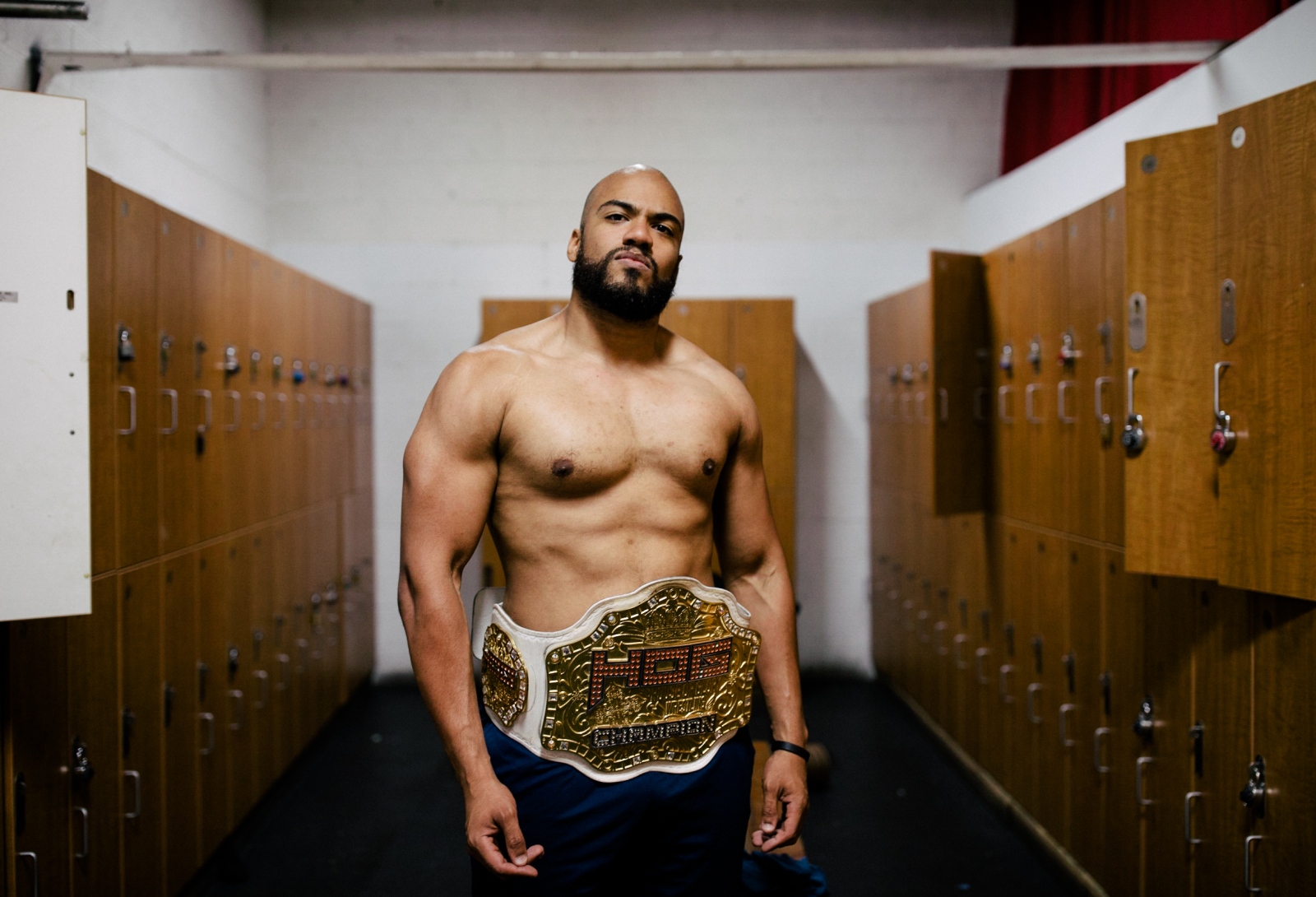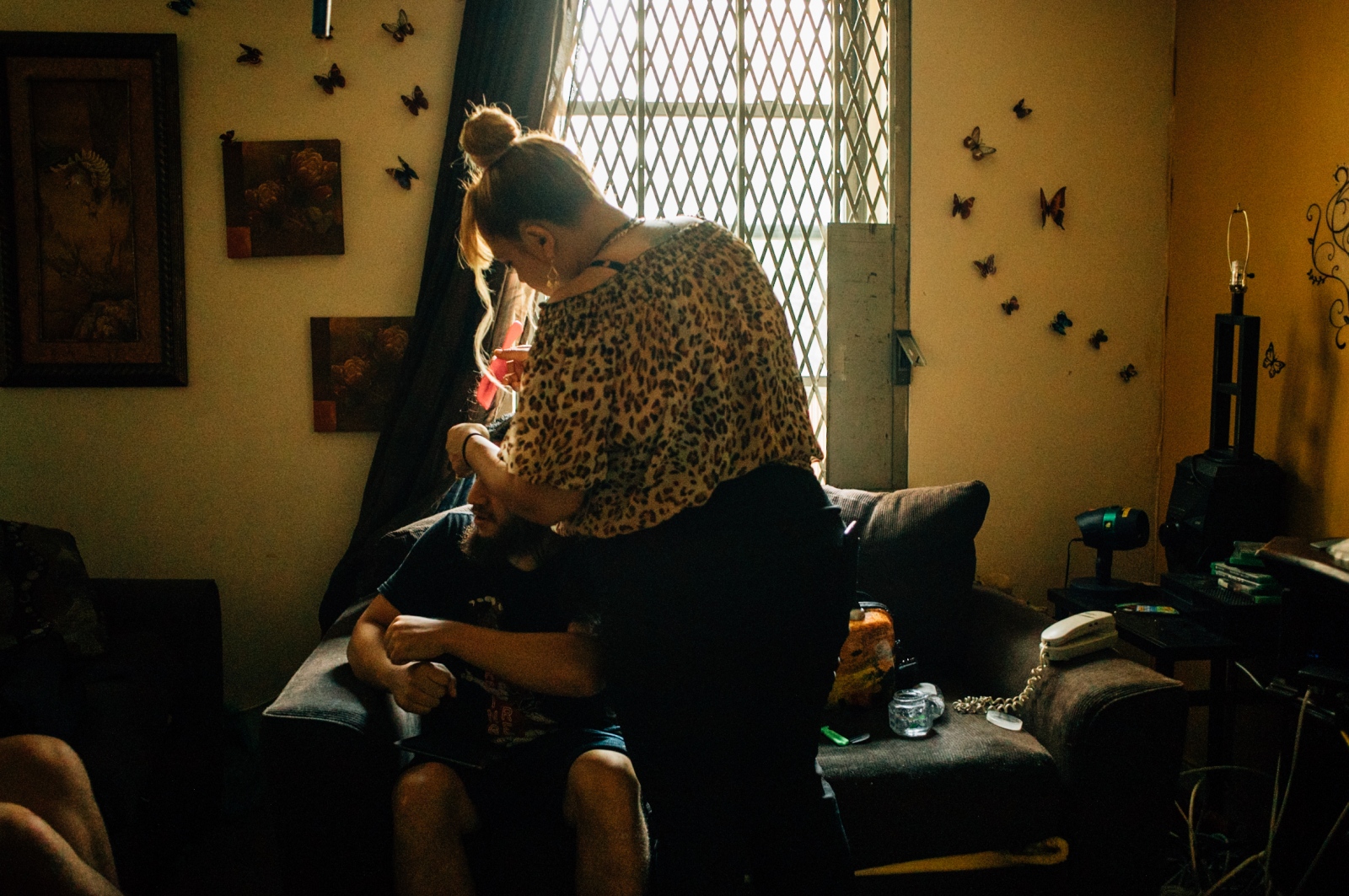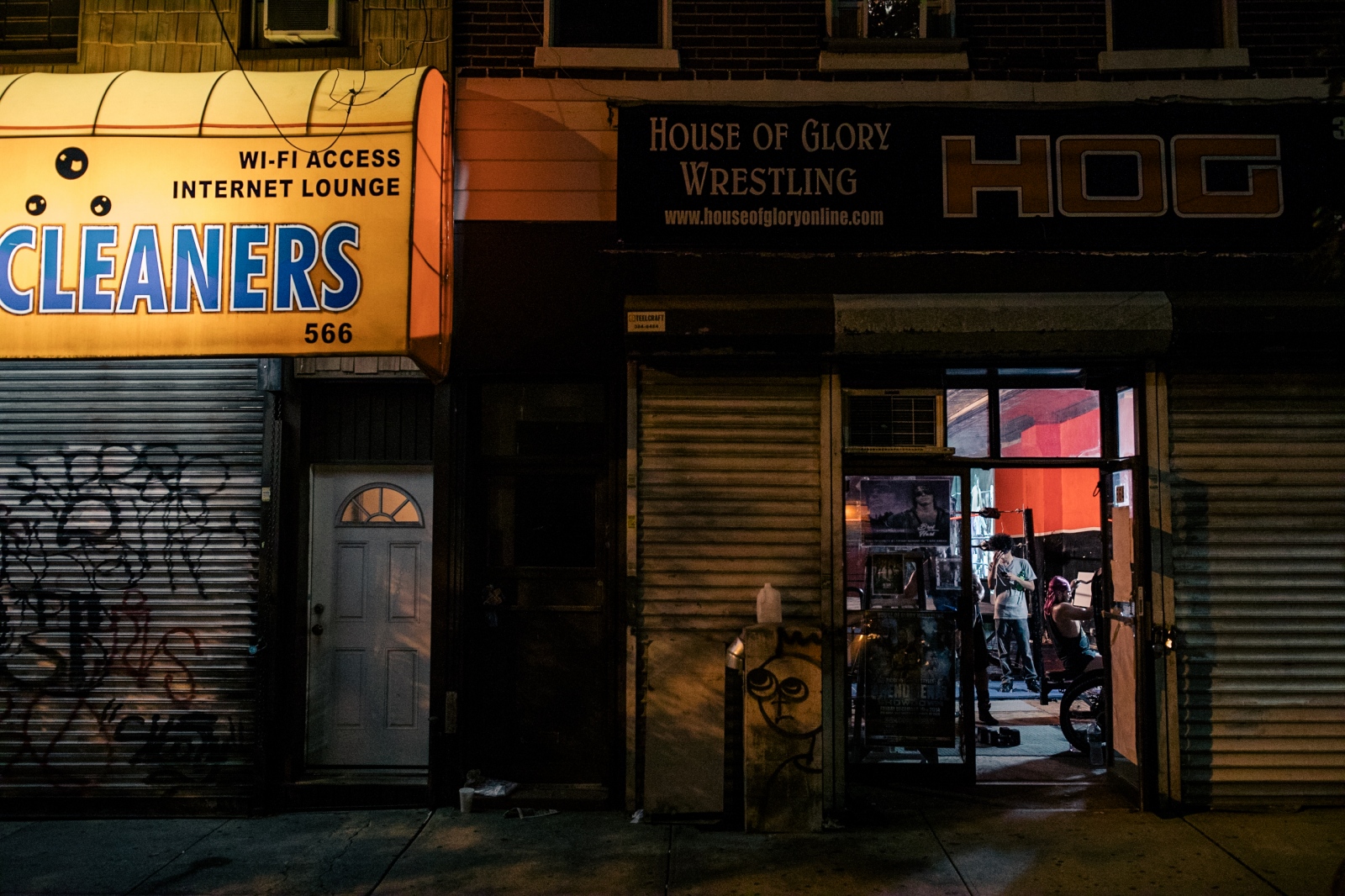Public Project
House of Glory
Words by Jake Bittle with photographs by José Alvarado Jr.
First published by VICE on January 8, 2019.
Why wrestling? What is it about this entertainment, this mixture of athletic prowess and campy performance, that lights up the audience’s eyes, that makes their voices hoarse? It can’t be simple bloodlust, because the pain on stage isn’t real, nor is the malice; the whole crowd knows that, even the children. It’s no different from going to the theatre, except that wrestling is drama made flesh, each punch and kick studding with sudden gravity the time-worn narratives of envy and revenge. And as in the theatre, the tremor that ties the room together tonight is less a suspension than a crucifixion of disbelief: all of this is real, and yet it is not real, and yet it is not not real.
If for the audience wrestling provides transport, for the wrestlers themselves it provides transcendence. Take for instance the wrestler Matt Travis, who trains at the House of Glory wrestling school in Queens, which hosts tonight’s show. At nine this morning he was sitting hunched over in his cramped apartment in the South Bronx. His mother, whom he lives with, was braiding his waist-length hair.
“Wrestling is my lifeline,” Matt, who is twenty-four, told me. “Every night I come home and hear how someone got shot...like, what if I’m next? But with wrestling, I feel like, finally I have a shot.”
Twelve hours later, on the other side of the city, Matt is mounting the top rope of a wrestling ring as two thousand people draw their breath. Clad in spandex briefs and thigh-high boots, his braids dripping with sweat, he looms over his opponent. Around him, the crowd is fairly ululating—they’re in the presence of a star.
House of Glory is one of numerous “indie” wrestling companies in the New York area, low-budget outfits that make money by hosting shows featuring a mix of in-house talent and big legacy wrestlers. But unlike other circuits, House of Glory also runs a “school” for young people who want to learn how to wrestle. The school has granted Matt, Evander, and other young people access to a double life: they arrive nearly every afternoon from all over the city and pile into a tiny gym to learn a craft that consists in equal measure of sport and spectacle.
The school is the brainchild of two former professional wrestlers, the Amazing Red, and Brian XL, who both grew up in Brooklyn and wrestled together as teens in empty churches. Brian never had much success, but Red spent years wrestling for TNA Impact, which for decades was the second most-watched wrestling network after WWE. After a leg injury threatened to derail his career, he reconnected with Brian, who had long entertained the idea of giving city kids a chance to learn wrestling from professionals. The school, now almost ten years old, is less training camp than summer camp, a way station for wrestling-obsessed young people. It sits on a quiet block of the Ridgewood neighborhood, and even from outside you can smell rubber and sweat.
Once they get good enough, students can start competing in House of Glory shows, joining the cast of colorful characters the gym keeps on retainer. For students who do make the cut, their moments on stage become the focal points of their lives, the eight minutes per month when they get to be who they, are even as they pretend to be who they’re not. After the shows, they sign autographs, sell merchandise, record menacing videos in character for thousands of followers.
It’s the promise of ring time that keeps them coming back even as the responsibilities of adulthood wear on them. One wrestler, Evander James, is in his early twenties, and also lives with his mother in the Bronx, which means he has it easy. On the morning of a match, he can wake up at dawn, call out sick from the middle school where he works, fill four tupperwares with rice and beans, and spend the day training at his neighborhood gym.
Manuel Mercado, who performs as Mantequilla” (Spanish for “butter stick”), is a more established talent at House of Glory—he wrestles in a cape and luchador mask, and backflips off the top rope, fans tossing streamers to celebrate his entrance. He’s had some success on independent circuits, but he’s twenty-five to Evander’s twenty-two, and life has started to wear on him. He lives in Astoria and also works for a city school, and often he travels out of state for weekend shows after working an entire week.
Even for the gym’s biggest stars, a full slate of matches can be hard to sustain. Sonya Strong, one of the gym’s leading female wrestlers, has been wrestling seriously for five years. She watched WWE a child but had never considered doing it herself until she had a dream that she was stepping into a wrestling ring, the crowd explodes with applause. Now she lives alone in the Bronx neighborhood where she was raised and raises a five-year-old daughter on her own. By day she works in retail, but none of her coworkers know she wrestles.
To complicate matters, each student’s advancement through the ranks is not only based on their talent as a wrestler, but also on their character’s place in House of Glory’s ongoing narrative. Brian designs the storylines for every show and picks the winners of each match, elevating performers he thinks will sell more tickets. But his decision-making process is a closely guarded secret.
“It’s like soap opera,” he says. “It’s like a telenovela. People want a story. They want something they can follow, that’s going to mean something to them.”
If Brian can’t find a place for a student’s character, they may come to practice two days a week, then three, then four, running drills for hours, and never wrestle. For many students, effort in the gym bears little relationship to the showcard for each event—“I should be wrestling tonight” is a familiar refrain, heard muttered backstage. The unspoken question is at what point they will give up, toss out the trunks and return to the “other” life that lies in wait. The joy they get from those minutes in the ring is transformative, even life-changing. But given the cruelty of the economics—given that almost none of the students will ever make it big—the “shot” young Matt Travis has is only provisionally real: like wrestling itself, it’s inescapable, totalizing as a trance, but alive only as long as everyone agrees to keep disbelief at bay.
14,582


































